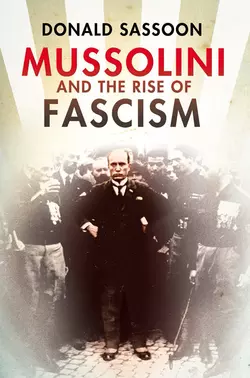Mussolini and the Rise of Fascism

Donald Sassoon
Тип: электронная книга
Жанр: Историческая литература
Язык: на английском языке
Стоимость: 191.96 ₽
Статус: В продаже
Издательство: HarperCollins
Дата публикации: 28.04.2024
Отзывы: Пока нет Добавить отзыв
О книге: In this fascinating look at the unique conjuncture of factors surrounding Il Duce’s seizure of power, eminent historian Donald Sassoon traces the political circumstances that sent Italy on a collision course with the most destructive war of the century.On the morning of 30 October 1922, Mussolini arrived in Rome to accept the premiership of a constitutional, conservative government. Within five years, however, his regime would morph into a dictatorship that neither his fascist supporters nor the conservative old order could have predicted, and Mussolini himself would be transformed from figurehead to despot.A multiplicity of personalities and wider impersonal forces, including the social upheaval caused by the previous world war, combined to make possible the crisis of 1922 and the Fascist ‘March on Rome’. But in fact, Donald Sassoon argues, things could have gone very differently and the core focus of this illuminating study is not so much what happened, but how. How did Mussolini seize power so effectively that he maintained it for the next twenty years, until he dragged his country, disastrously, into World War II? Social fragmentation, unionization, inflation and nationalism all played a part in weakening the old political system, while Mussolini seemed to provide answers in a troubling new era. In the event, Il Duce′s ruthless political ambition and cruel authoritarianism would surprise his supporters and opponents alike.Note that it has not been possible to include the same picture content that appeared in the original print version.